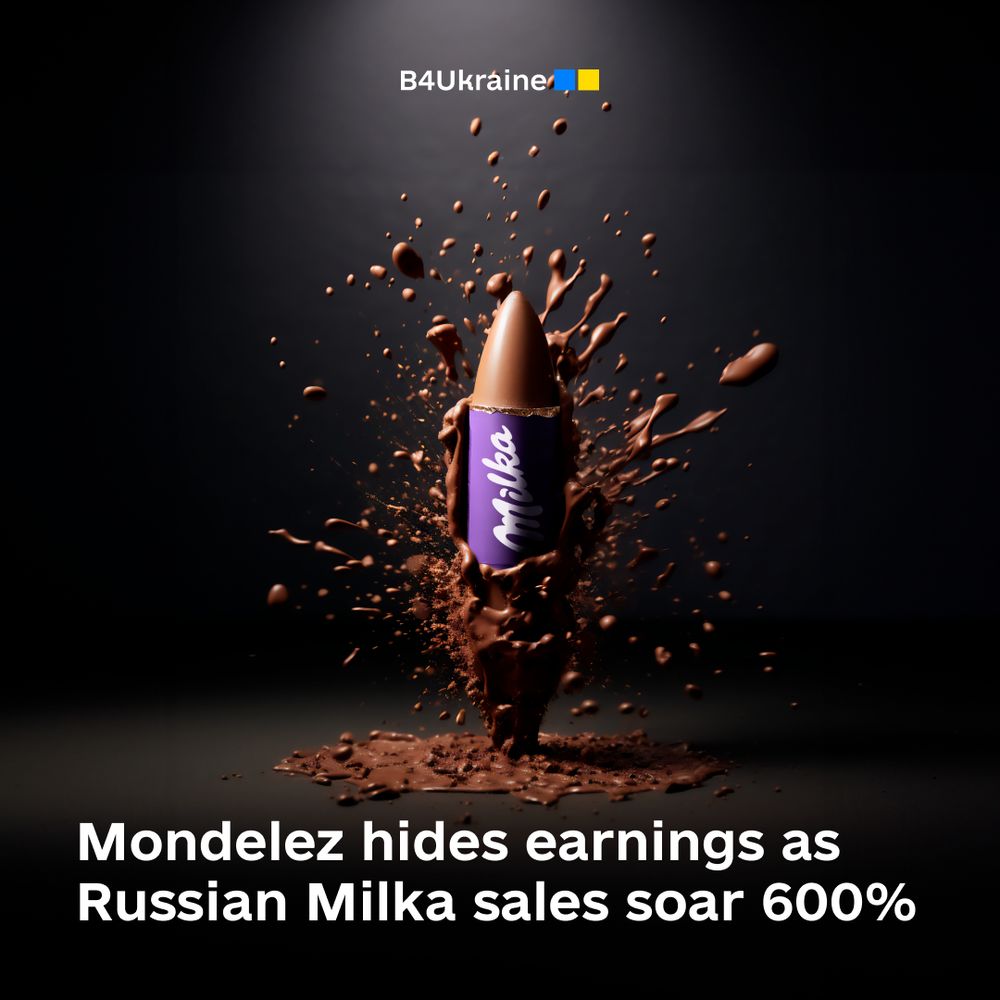
American company Mondelez International, a producer of chocolate and cookies including Oreo, Milka, Toblerone, Barny, and Tuc, has decided not to disclose the financial statements of its Russian business for 2023. The decision not to disclose data (a move also adopted by Nestle and Mars) demonstrates an attempt by consumer goods giants to avoid further reputational damage associated with their refusal to exit the market of the aggressor country.
Faced with a B2B boycott and ongoing pressure from employees, activists, politicians, and investors to exit Russia, the company pledged to make its business there “stand-alone with a self-sufficient supply chain” by the end of last year.
Yet despite promises to reduce operations in Russia and multiple attempts to engage the company’s leadership, Mondelez continues to expand its business.
For example, the company sold 9,800 tons of Milka chocolate in Russia in just the first quarter of 2024 — six times more than projected for the same period.
The company’s Russian subsidiary and its employees also remain entangled with the rest of Mondelez. A Reuters source, familiar with the matter but not authorized to speak to the media, reported that the Russian subsidiary of Mondelez still uses the company’s enterprise resource planning (ERP) system. The source also noted that Russian employees working for the Russian business continue to attend work meetings with employees from other regions.
Despite the classification of financial statements, according to estimates by the Kyiv School of Economics (KSE), Mondelez’s revenue in Russia in 2023 amounted to $1.417 billion, up from $928 million in 2021 and roughly on par with $1.463 billion in 2022, with $62 million paid in taxes to the Kremlin.
Considering such activities as a significant contribution to Russia’s war economy, Ukraine’s National Agency on Corruption Prevention (NACP) last year listed Mondelez among the “international sponsors of war” alongside other FMCG giants such as Unilever, P&G, Mars, Nestle, and PepsiCo.
Why do some companies not disclose their local financial reporting in Russia?
First of all, the legislation for strategically important companies has allowed that since last year, so there will be no penalties for them.
Second, KSE assumes that such companies (like Mondelez, Mars, Nestle, Leroy Merlin, and Jacobs Douwe Egberts) have something to hide if they prefer not to disclose their financial statements.
For example, Mondelez has two key enterprises in Russia: LLC “MONDELEZ RUS” (tax ID 3321020710) and LLC “CHIPITA SAINT PETERSBURG” (tax ID 7807061269). In 2022, both these companies disclosed their local reporting, and it was available in open sources.
However, throughout 2023 and 2024, there have been many public actions against Mondelez: in Chicago, led by the Illinois branch of the Ukrainian Congress Committee of America, as well as by local activist groups in Germany, the UK, Greece, and Switzerland. Mondelez also faced severe criticism from British MPs following an FT interview with the company’s CEO, where Dirk Van de Put stated that investors “do not morally care” about Mondelez’s Russia business.
“After worldwide campaigns, the company found itself in an awkward position because it had to explain why its revenue, profit, and taxes paid in Russia increased significantly in 2022,” says KSE researcher Andrii Onopriienko.
“One of the simplest decisions was not to disclose local financial reporting for 2023 at all (and use the category ‘Other regions’ in IFRS reporting), but that usually means that their financials were the same or even increased compared to the previous year,” he said.
KSE uses estimates for such cases, conservatively keeping the same revenue and profit tax values as the previous year.
“That will help to keep the focus on such companies in the future until they make the only right decision — leave Russia and stop feeding its war machine,” Onopriienko added.